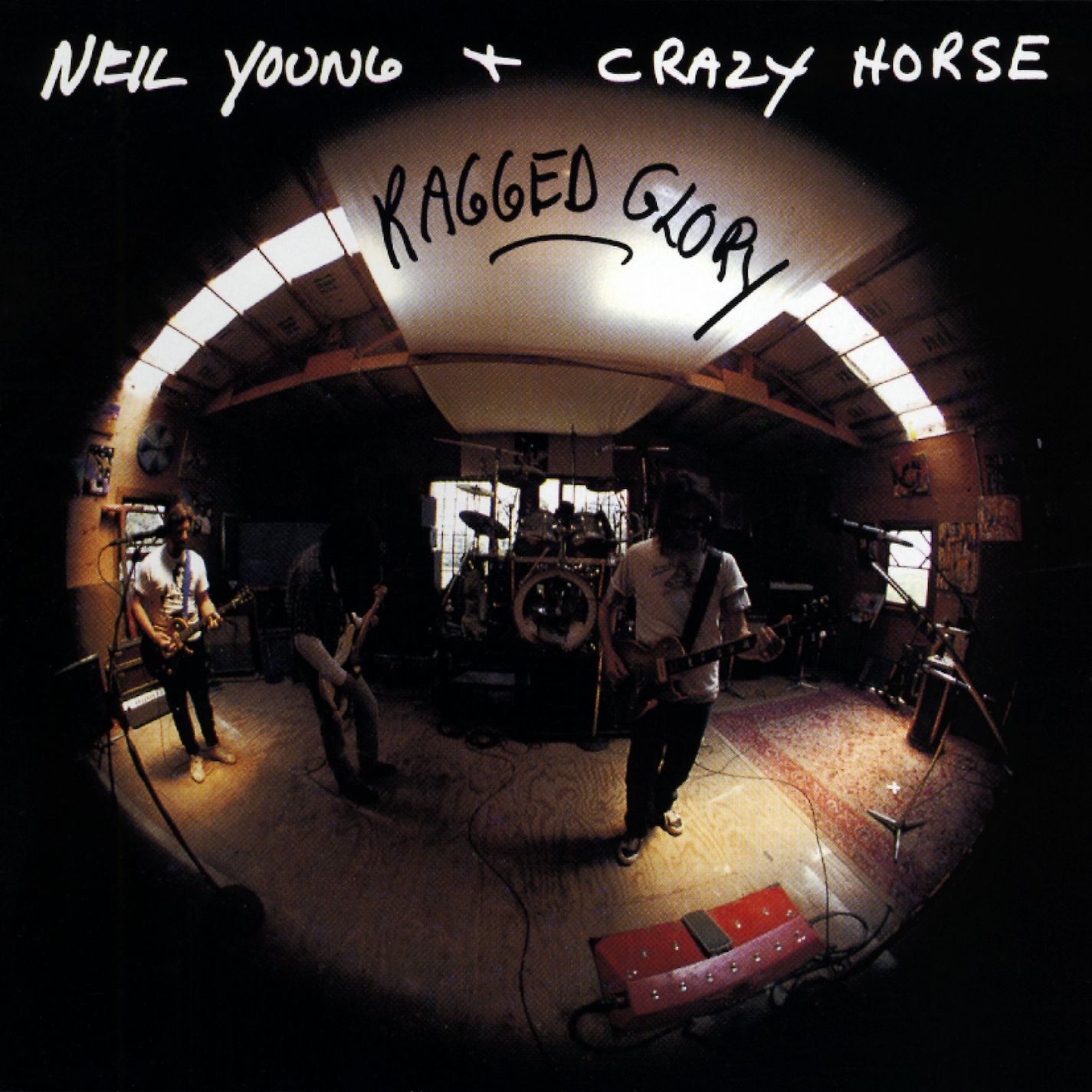It had been a long time coming. Neil Young had last reached one of his irregular artistic peaks in 1979 with Rust Never Sleeps, but throughout the next decade he seemed to go into free-fall, until he recorded the Eldorado EP which stopped the rot and followed it up with the fair to middling Freedom. Oh well, at least he had stopped getting worse.
1990’s Ragged Glory is a big, muddy, diesel-belching monster-truck of an album and it was confirmation that Young still had what it took to put out a solid album featuring a brace of great tunes. Okay so there were still some imperfections present, such as his career long habit of ruining a great song by not knowing when to hit the stop button, and of Ragged Glory’s ten tracks, “Over And Over”, “Love To Burn” and “Love And Only Love” would have been vastly improved if they had been half as long. There are also examples where Young had obviously learned this lesson, such as the opening “Country Home” which is a raucous example of Young and Crazy Horse doing what they do best. Sure, it clocks in at just over seven minutes, but they are seven minutes that are well spent. There are a number of other tracks that also show that, despite their already advancing years at the time, the combination of Neil Young and Crazy Horse was still highly combustible, with “F*!#in’ Up”, “Days That Used To Be” and a splendid cover of “Farmer John” displaying the ragged glory of the album title.
In many ways Ragged Glory is Neil Young’s most joyous record, as if he’s celebrating being reunited with his inspiration again by making a big loud rock album in a manner that big loud rock albums hadn’t been made for a very long time. Yes, sometimes enthusiasm gets the better of him and Crazy Horse, and certainly closer “Mother Earth (Natural Anthem)” is frankly useless, but it’s difficult not to get swept along with the positive vibe of Ragged Glory and be relieved that, after over a decade in the artistic wilderness, Neil Young was back and showing the young bucks that had started to borrow generously from his 70s sound how it should be done.
While Ragged Glory doesn’t hold a candle to 70s classics like After the Gold Rush and Rust Never Sleeps, it’s still on a par with the likes of other Crazy Horse assisted classics like Everybody Knows This Is Nowhere and Zuma, and this is no bad thing in any way. Okay, so Neil Young’s quality control has been reassuringly erratic and refreshingly honest ever since, but when you listen to Ragged Glory it’s difficult to write off Young making another gloriously huge-sounding album like this again despite it being over quarter of a century old now.














No Comment